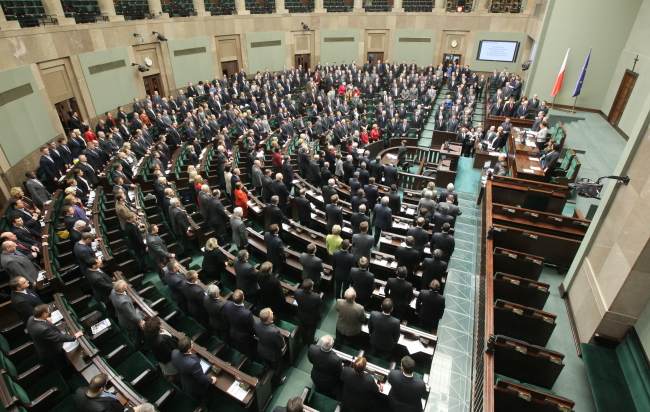
The Sejm in session: photo - PAP/ Pawel Supernak
The incident took place during the last session of the lower house of parliament (Sejm) in December.
In spite of not carrying passes, journalists from public television channel TVP 1 managed to enter the building through a supposedly guarded side entrance.
They had packed 3 kg of materials that could be used to make a bomb into a briefcase.
Once inside, the group managed to visit the debating chamber, ultimately leaving the briefcase in a conference room currently used by the Democratic Left Alliance party (SLD).
“This is outrageous and shocking, but it also shows how easy it is to get in there,” said Speaker of the House, Ewa Kopacz, in an interview with TVP.
Specialists from Warsaw's Military University of Technology (WAT) have confirmed that the substances in the briefcase could be used to make a bomb.
All the substances can be obtained legally in Poland.
In November, Dr Brunon K. (full name withheld under Polish privacy laws), an employee of Krakow's Agricultural University, was arrested for allegedly planning to blow up parliament.
Prosecutors described the man as a nationalist and anti-semite, who believed that “the situation in the country was going in the wrong direction because all leading governmental positions were occupied by 'foreigners'.”
Security teport highlighted weak points
A governmental report from 2010 made clear that Poland's parliamentary buildings were highly vulnerable to a terrorist attack, Polish paper Gazeta Wyborcza outlined after Brunon K.'s arrest.
The report, which was commissioned by the Ministry of the Interior, concluded that the front of Poland's lower house of parliament (Sejm) had no protection, and only half of the entrances to parliament were properly equipped.
The document revealed that Poland's parliamentary complex was one of the worst protected in the world, yet none of the report's recommendations were taken up, the paper claims. (nh)